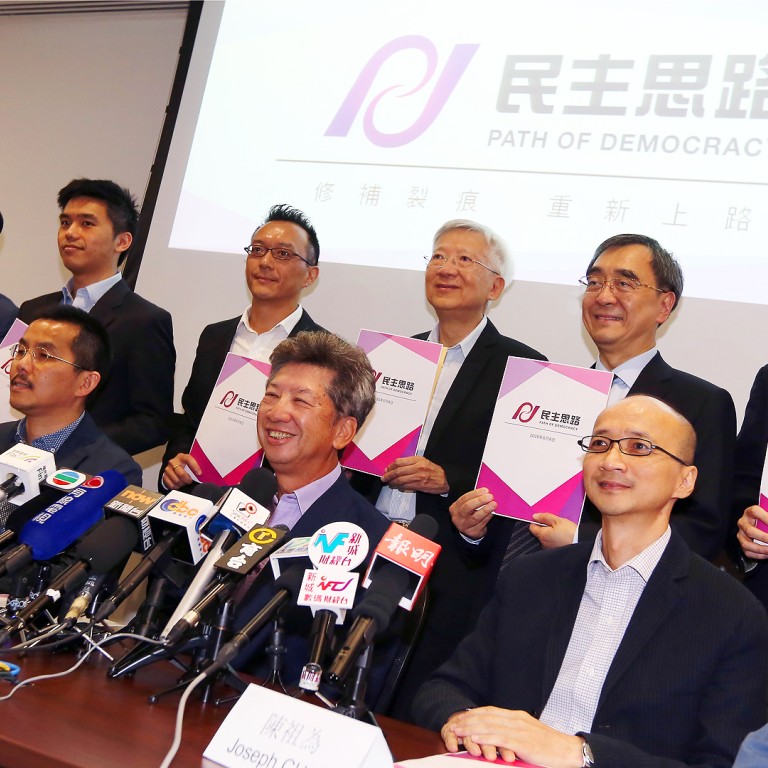
Hong Kong needs a moderate stance for political reform talks with Beijing, says outgoing lawmaker Ronny Tong
Hong Kong will never make the most of its unique "one country, two systems" political set-up or achieve universal suffrage without adopting a more moderate stance in talks with Beijing, outgoing pan-democrat lawmaker Ronny Tong Ka-wah said.
In an interview with the , Tong said Hongkongers must find a third way to achieve what they wanted or face a future of polarised political posturing that delivered them nothing.
"You have to accept there is a 'one country' and convince Beijing [that] in order to realise the 'one country, two systems' they have to respect the 'two systems' more," Tong said. "Unless we can resolve this problem we don't have a chance of getting universal suffrage."
Tong, also a senior counsel told the that deep anti-Beijing sentiment made it increasingly difficult for Hong Kong's politicians to take a moderate approach. He warned people could not only "take the good and reject the bad" if they wanted "one country, two systems" to work.
After his tearful resignation from the Civic Party and the legislature a week ago, Tong, 64, said his newly established think tank, Path of Democracy, would focus on finding a "third way" for Hongkongers.
But some scholars who used to identify themselves as moderates voiced doubt about his prospects for success.
Political scientist Dr Brian Fong Chi-hang, one of 18 scholars who floated a middle-of-the-road reform plan last year, said there was no longer such a pathway available.
Fong said the moderate approach was based on an assumption that there were also liberals within the central government able to interact with Hong Kong's pan-democrats, but Beijing's restrictive framework on political reform had proven that was not the case.
"I would not be a moderate again and bow for dialogue with Beijing," said the academic. "We are fighting for democracy, not merely for consensus."
Another political pundit, Ivan Choy Chi-keung of Chinese University, agreed that the time to develop a moderate approach had passed.
Choy was among a team of scholars, including Fong, who worked on a compromise reform plan for the 2012 Legco elections alongside the Democratic Party that was later adopted following negotiations with central government officials.
"Back then we had hoped Beijing would build a platform for regular communication [with pan-democrats], but it reneged on its promise and toughened its stance," Choy said, adding the development had frustrated moderate academics, including Dr Chan Kin-man who later co-founded Occupy Central.
"The situation now is even worse with Beijing becoming even more hawkish," he said.

